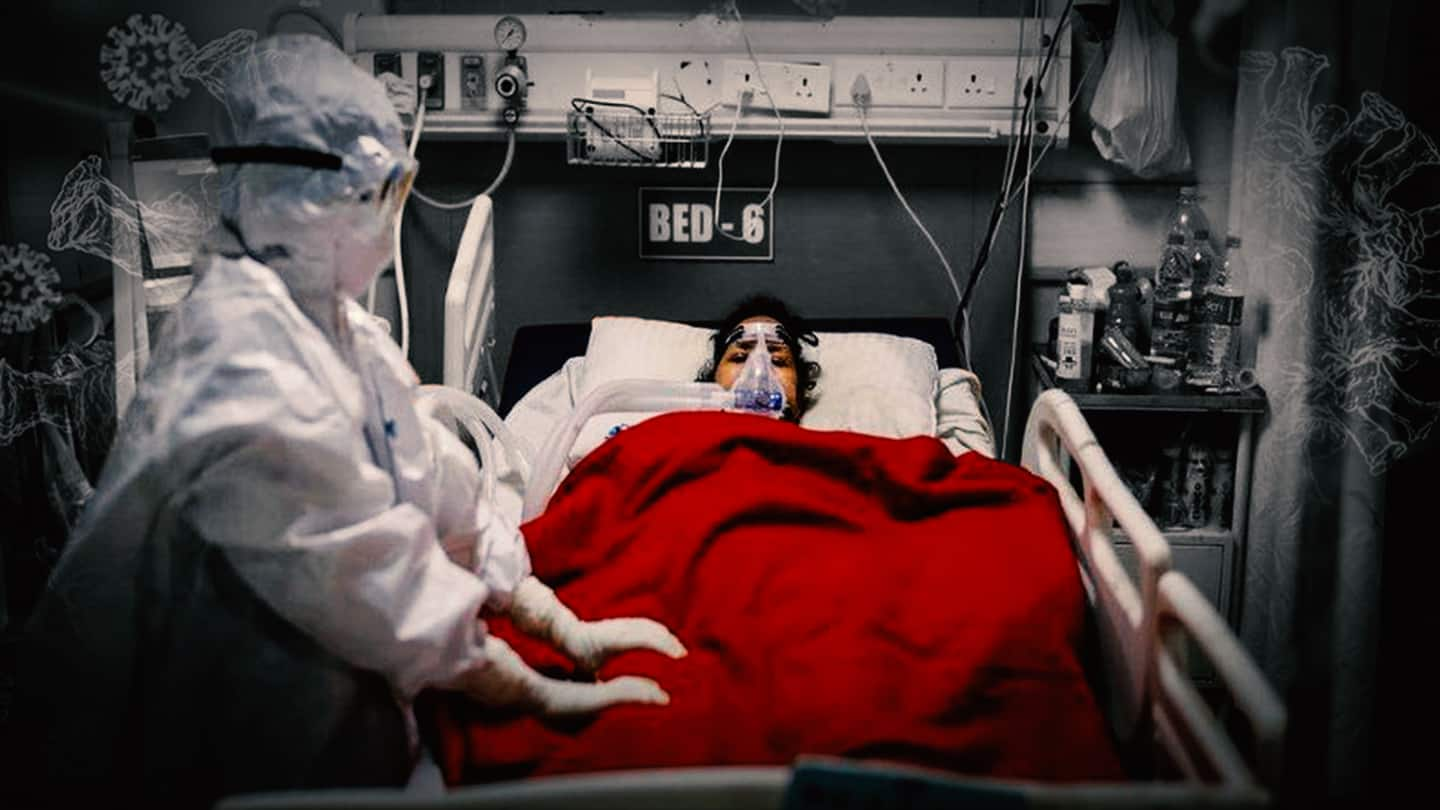
Severe COVID-19 requiring oxygen therapy may reduce gray matter: Study
What's the story
Severe cases of COVID-19 have now been linked to the reduction in gray matter volume in the frontal lobe of the brain.
According to a study, such instances were witnessed in COVID-19 patients who had a fever and those requiring oxygen therapy.
Experts now ask patients who recovered from the disease to keep a check on any neurological symptoms.
Here are more details.
Details
Patients with higher level of disability had less gray matter
A study recently found that gray matter volume in a frontal-temporal network was "reduced in patients receiving oxygen therapy or with fever compared to those not receiving oxygen therapy or without fever."
Patients with a higher level of disability also had lower gray matter volume in superior, medial, and middle frontal gyri at both discharge and at six months follow-up.
Definition
What is gray matter?
Gray matter in the central nervous system are areas consisting primarily of neuronal cell bodies (soma). The nucleus of the cell body is located in the soma.
Gray matter also comprises axon tracts, glial cells, capillary blood vessels, and neuropil (a mix of dendrites, unmyelinated axons, and glia).
This part of the brain is associated with processing information, controlling muscular/sensory activity, memory, and emotions.
Quote
'Those with smaller brains likely to have poorer outcome'
National Institute of Mental Health and Neurosciences (NIMHANS) Director Dr. BN Gangadhar told India Today that such outcomes are likely in people with pre-existing brain disorders and co-morbidities such as hypertension and obesity.
"Once you get COVID-19, those with smaller brains are likely to have a poorer outcome. Lesser gray matter is another risk factor for poorer outcome," he said.
Information
'Reduced gray matter seen in mood disorders'
Speaking to India Today, Dr. Pavan Pai, a neurologist at Wockhardt Hospital, said, "Reduced gray matter is also seen in mood disorders which explains how it causes mood swings and anxiety issues in COVID-recovered patients."
Symptoms
'Moderate to severe COVID-19 cases can exhibit memory problems'
Dr. Varun Reddy—a consultant neurologist, at Yashoda Hospitals in Malakpet, Telangana—told The Times of India, "Patients, who have been admitted with moderate to severe COVID-19, can continue to have problems in memory, concentrating on tasks given to them, and slowness in their activities."
"We have seen patients presenting with mood disturbances, hallucinations, and other cognitive issues," he said.
Arguments
Could COVID-19 alone lead to reduction in gray matter?
Dr. Mukesh Kumar—an associate director, Department of Neurology, Max Hospital—told India Today that it was difficult to say if COVID-19 alone could lead to the reduction in gray matter volume.
Severe COVID-19 patients requiring oxygen generally display agitation, psychotic reaction, abnormal behavior, while a reduction in gray matter is associated with other disorders, such as schizophrenia, psychosis, OCD, he said.
Suggestions
Sleep 8-9 hours, manage stress, suggests doctor
Dr. Pai suggested that those who recovered from COVID-19 should monitor themselves for "abnormal symptoms."
He suggested that post-COVID-19 brain manifestations can be avoided by sleeping for eight to nine hours every day, managing stress, managing diabetes mellitus and blood pressure, exercising, solving puzzles, indulging in enjoyable activities, and increasing the intake of protein, fruits, vegetables, and healthy fats.